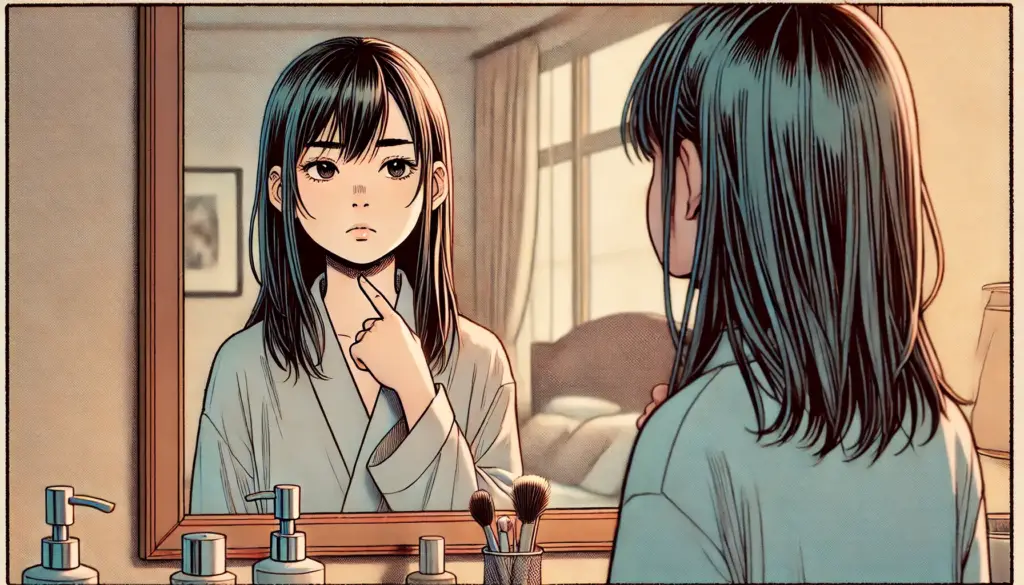
In an era defined by filtered selfies and the relentless pursuit of perfection, Japan is quietly facing a psychological and cultural emergency. Lookism — the belief that a person’s appearance determines their worth — is no longer a fringe concern. It has seeped into the minds of young people across the country, amplified by social media and the rise of beauty enhancement tools. Now, even one of the most prominent names in cosmetic surgery, Dr. Mikami Takasu of the Takasu Clinic in Nagoya, is sounding the alarm.
💡**“If lookism becomes excessive,” Dr. Takasu warns, “the happiness of the nation will decline.”**💡
In a rare and revealing interview, Dr. Takasu — whose family has practiced medicine across generations — shares his candid thoughts on how cosmetic surgery, once a niche solution for structural concerns, has evolved into a cultural phenomenon threatening the mental well-being of Japan’s youth.
A Family Legacy — And the Rise of the Beauty-Obsessed Generation
Born into a family of medical professionals in Nishio City, Aichi Prefecture, Dr. Takasu grew up surrounded by medicine. His father practiced orthopedic surgery, while his mother and grandmother worked in pediatrics and obstetrics. Becoming a doctor was never a matter of if, but when.
But it wasn’t until the explosion of social media platforms like Instagram and TikTok that he began to notice something deeply troubling.
📱**“The moment young people started constantly uploading selfies, everything changed,”** he said.
With high-resolution cameras and real-time editing, youths began scrutinizing every facial angle and comparing themselves obsessively to peers. Even attractive individuals began perceiving themselves as “ugly” simply because they didn’t photograph well.
The Rise of Filtered Identity
According to Dr. Takasu, the most common reason young people now seek plastic surgery is shockingly superficial: how they appear in photos.
📸“It’s all about the picture,” he noted. “They come in saying, ‘My face looks bad in photos—please fix it.’ I tell them, ‘You’re beautiful,’ but they insist. They don’t even listen anymore.”
What was once a rare corrective procedure for a specific concern has become an emotional escape for those struggling with distorted self-image — often unrelated to any objective flaw.
📉This, Dr. Takasu warns, is not a healthy trend.
Aesthetic Obsession and National Unhappiness
One might assume that rising demand for cosmetic procedures would benefit his industry. But Dr. Takasu is troubled by the broader consequences.
🧠“Too many young people are mentally suffering, obsessing over problems that don’t truly exist,” he explained. “Their brains are simply misjudging reality.”
Instead of feeling empowered, they spiral into insecurity and dissatisfaction. The pursuit of beauty no longer brings joy — it brings anxiety.
He remembers a time when only a select few sought cosmetic surgery. Back then, national happiness levels were arguably higher. People improved a specific issue and moved on. Now, the obsession is perpetual — a self-esteem crisis masquerading as self-care.
The Korean Cautionary Tale
To illustrate the dangers of unchecked lookism, Dr. Takasu points to South Korea — often referred to as the “plastic surgery capital of the world.”
🇰🇷**“Korea is a hyper-lookism society,”** he stated. “If you’re not beautiful, if you’re not young, you’re excluded.” From job interviews to dating prospects, appearance can determine life opportunities.
It’s common for people to undergo cosmetic procedures before job interviews — not for confidence, but survival. Men, too, are affected: “Short men are often told they have no value,” Dr. Takasu remarked.
The result? A polished society with one of the lowest happiness indexes among developed nations. Social conformity and pressure have overtaken individuality and contentment.
Cosmetic Surgery as a Symptom, Not the Cure
Despite leading one of Japan’s most recognizable cosmetic clinics, Dr. Takasu doesn’t promote universal access to surgery. In fact, he believes widespread surgical normalization leads to societal decline.
🏥“The more people believe they need to fix their faces to be worthy,” he said, “the more damaged our collective mental health becomes.”
He emphasizes that cosmetic surgery has a place — especially for those with genuine concerns that impact their lives — but it must not become the default path for self-esteem repair.
Instead of helping people feel better about themselves, the industry is increasingly reacting to distorted social standards that are impossible to meet.
Beyond Filters: A Culture at a Crossroads
Japan’s youth are not inherently more insecure than previous generations. What has changed is the constant exposure to manipulated realities and algorithmic comparison.
A single bad selfie, a momentary unflattering video, or a comment from a stranger online can now shape a young person’s identity. What used to be a passing thought is now a permanent scar in their psyche.
And this shift isn’t just cultural — it’s economic, emotional, and potentially irreversible if left unchecked.
Final Thoughts: Beauty Isn’t the Enemy, But Obsession Is
Dr. Takasu is not anti-cosmetic surgery. Rather, he is calling for balance, perspective, and a return to self-worth that isn’t skin-deep.
He challenges society — from parents to educators to content creators — to rethink how beauty is portrayed and pursued.
👀“We need to stop chasing an impossible ideal and start valuing people for who they are — not just how they look in a photo.”👀
Until then, even the best surgical techniques will never fix what’s broken inside.



















































